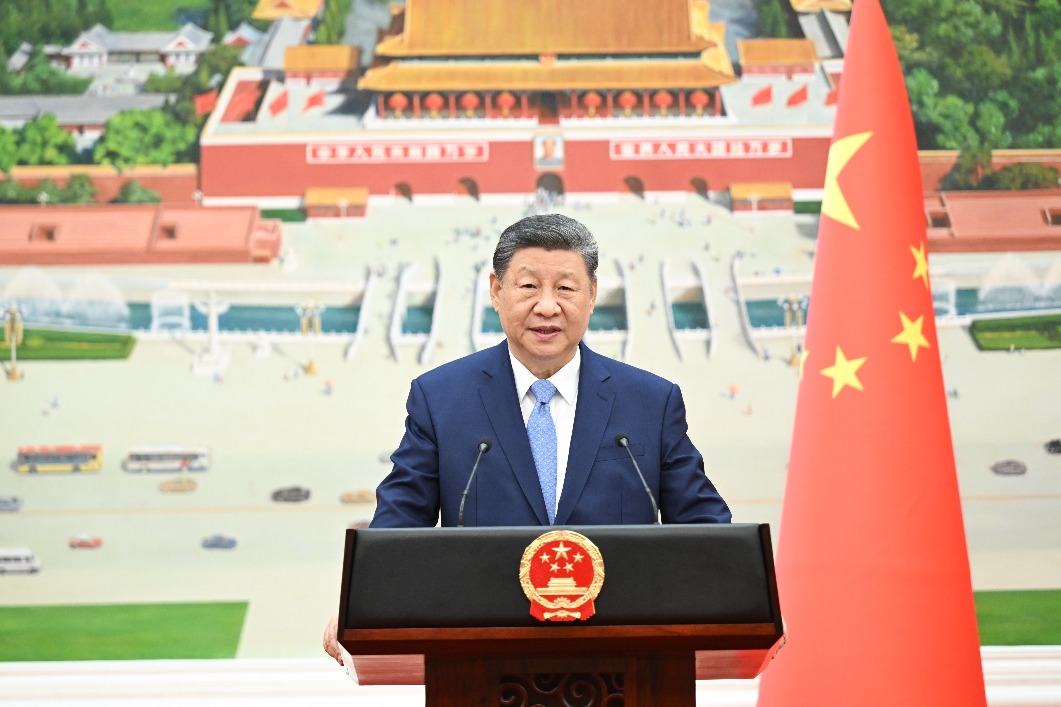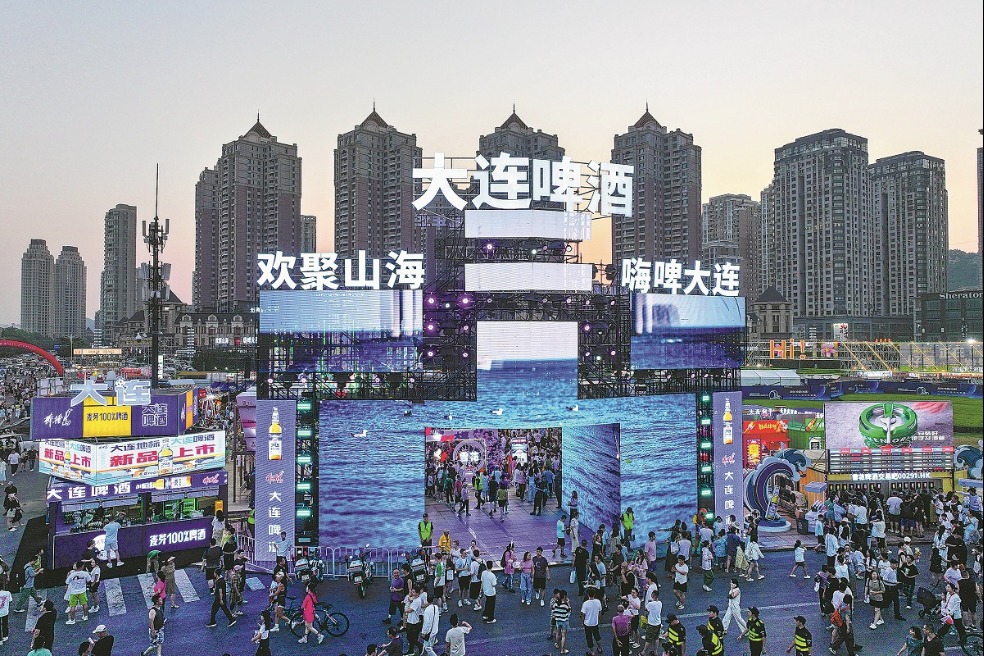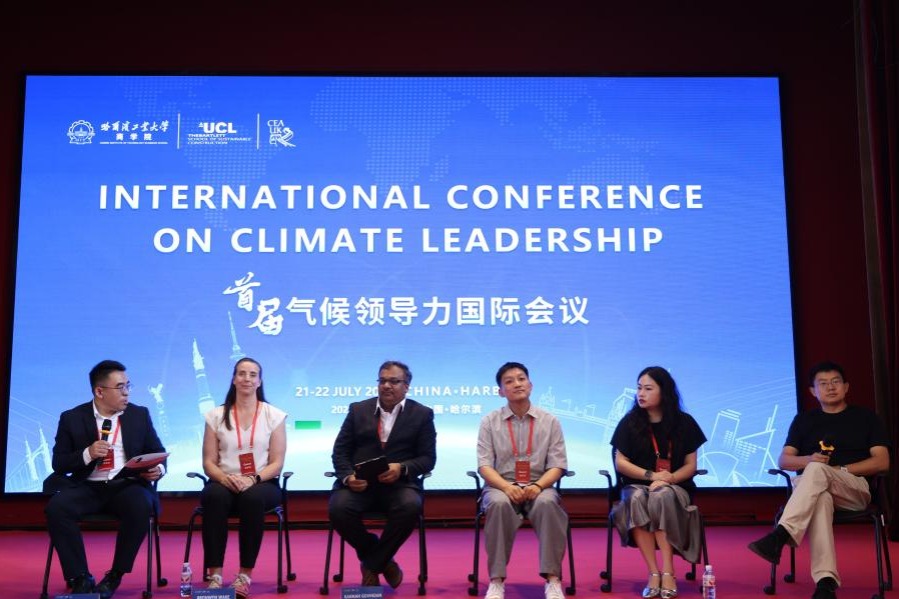Chinese, European scientists plot future progress in Beijing

Scientists from China and Europe have underscored the imperative of cross-border collaboration in scientific research, emphasizing the transformative power of uniting minds across continents to address global challenges. The scientists were attending the opening of the China-EU Young Scientists Exchange Programme in Beijing on Friday.
The program, organized by China's Ministry of Science and Technology, facilitates European scientists' exchanges with Chinese universities, research institutions and technology enterprises.
"There is a powerful idea that has shaped human progress for centuries: the belief that when great minds come together across borders, they can achieve the extraordinary," said Zied Moumni, dean of Shanghai Jiao Tong University's Paris Elite Institute of Technology.
"Today, as we face challenges that no single nation can solve alone — climate change, pandemics, the ethical frontiers of technology and AI governance — the partnership between China and Europe in scientific research is not just valuable, it is vital," he said.
Highlighting these collaborations, Moumni cited examples such as European engineers working in China's deserts to advance solar energy technology, and young researchers in Berlin, Paris and Shanghai exchanging pioneering ideas that could someday cure diseases or power cities sustainably.
Qiao Yan, professor at the Chinese Academy of Sciences' Institute of Chemistry, noted that young scientists from China and Europe share common aspirations: curiosity, passion and a drive to make meaningful contributions.
"We are the bridge connecting different scientific cultures, and our cooperation will define the next generation of scientific breakthroughs," she said.
Santiago Montero-Mendieta, a Spanish postdoctoral researcher at the Institute of Zoology, Chinese Academy of Sciences, spoke about his decision to conduct research in China, citing its strong scientific environment.
"I applied for the CAS President's International Fellowship and was accepted, along with a postdoctoral offer in the United States, but I chose China. I felt welcomed and believed the scientific opportunities here were stronger. It was absolutely the right choice," he said.
In spite of some difficulties in the current China-EU partnership, Moumni said: "History teaches us that breakthroughs occur when we opt for dialogue over division, and view collaboration not as a compromise, but as a multiplier of our strengths.
"Let us streamline visas for researchers, expand funding for joint projects, and create frameworks to protect intellectual property while encourage open exchange.
"Investing in the next generation, fostering student exchanges and joint degrees that forge lifelong bonds are also vital," he added.
Igor Vinograd, a German researcher at the Grenoble High Magnetic Field Laboratory of the French National Center for Scientific Research, stressed the necessity of continued investment in fundamental research.
Today's research is complex and requires sustained efforts from research teams over many years. Time for experimentation and learning from failures is crucial, often spanning more than a decade. Interruptions, even of less than a year, can have long-lasting detrimental effects, he said.
"Europe and China must maintain cooperative relationships and invest in basic research over extended timescales — not just years, but decades," Vinograd added.
Today's Top News
- China sees over 33.7 billion inter-regional trips in H1
- BRICS justifiably calls for IMF reforms
- Xi receives credentials of new ambassadors to China
- Sino-US trade talks key to global supply chain
- Medical insurance covers 95% citizens
- Great opportunities mark 50th anniversary






























